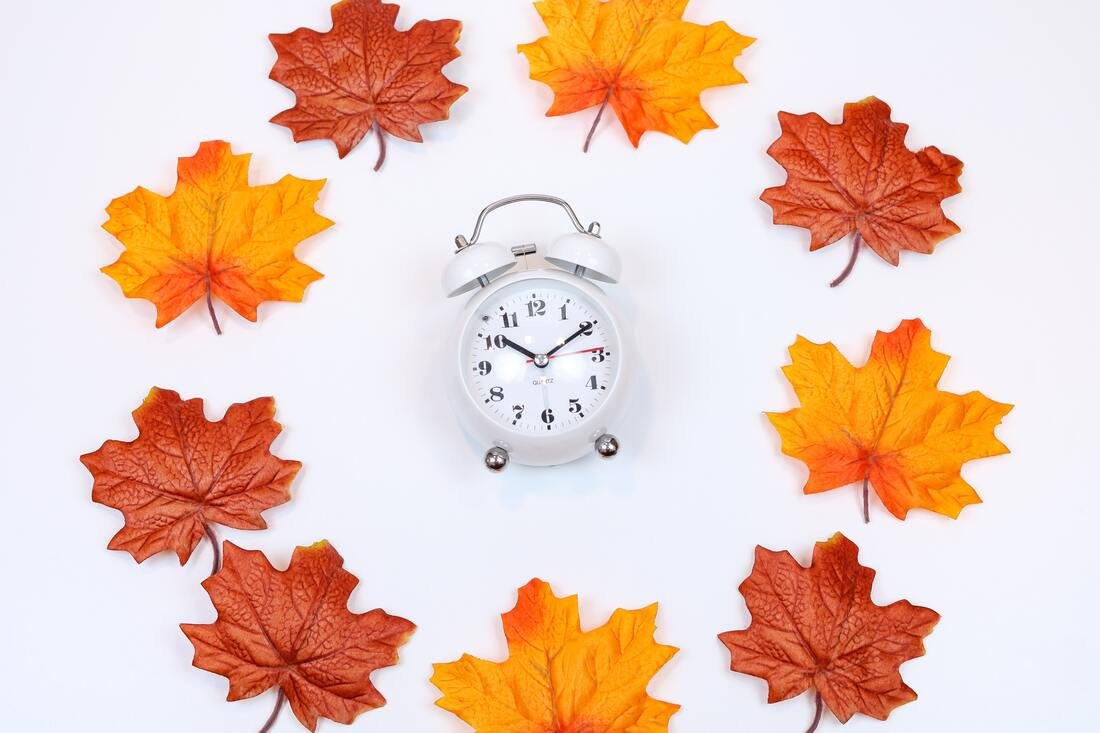How to Save Yourself from Daylight Saving
Although the time-change can lead to confusion and sleep loss for many people, we are approaching the less-disruptive change of “falling back,” which can sometimes help people to catch up on sleep and feel more alert during the day. As pleasant as the extra hour of sleep is, this time of year can be frustrating when it comes to leaving work after the sun sets and missing out on time to spend outside. Whether you need to adjust your evening strolls, or you need to make sure you wake up at the current time, there are certain steps you can take to ease your body out of Daylight Saving time and protect your mental health during the shorter winter days.
Sunlight
Getting yourself out in the sun in the morning can be a great way to kick-start this season. Since we “fall back” this time of year, it can be helpful to aim to spend time outside when possible to boost your mood, maintain your circadian rhythm, and combat dreariness that can arise when you don’t see much daylight for too many days in a row. This can also be helpful the day before the time change - spending an extra bit of time moving around outside if the weather permits!
Activity
Going on a walk during your lunch break, getting in an extra workout over the weekend, or stretching before bed - these are all small examples of how we can care for our bodies while we adjust to the new time. Engaging in a mindfulness or relaxation practice, lighting candles, gentle stretching, and putting away screens an hour or two before bed are ways to emphasize the intentionality of your evening routine to support healthy sleep. This is also a good time to re-evaluate your schedule to make sure you’re able to budget time for exercise. For example, if you typically go on a run after work but don’t feel comfortable running in the dark, it may be helpful to plan your exercise for before work or on your break, if you have time.
Clocks
To prepare for the change of time, you’ll want to adjust your clocks the evening before we “fall back” to gently introduce your body to the new time & save yourself the trouble the next day. The actual date of the change is November 6th at 2 am. You can also set an alarm for your normal wake-up time on Sunday to help your body adjust and make things a bit easier for the following evenings and mornings. No need to stay up an hour later than you’d want to on Saturday night - your body will thank you for the extra time to rest!
It can be frustrating to have to change your schedule when the sun starts setting earlier than you’d like it to. Being intentional about the use of your time can help soften the blow of shorter days. Remember to treat yourself gently and with kindness as we enter colder months and shorter days.

